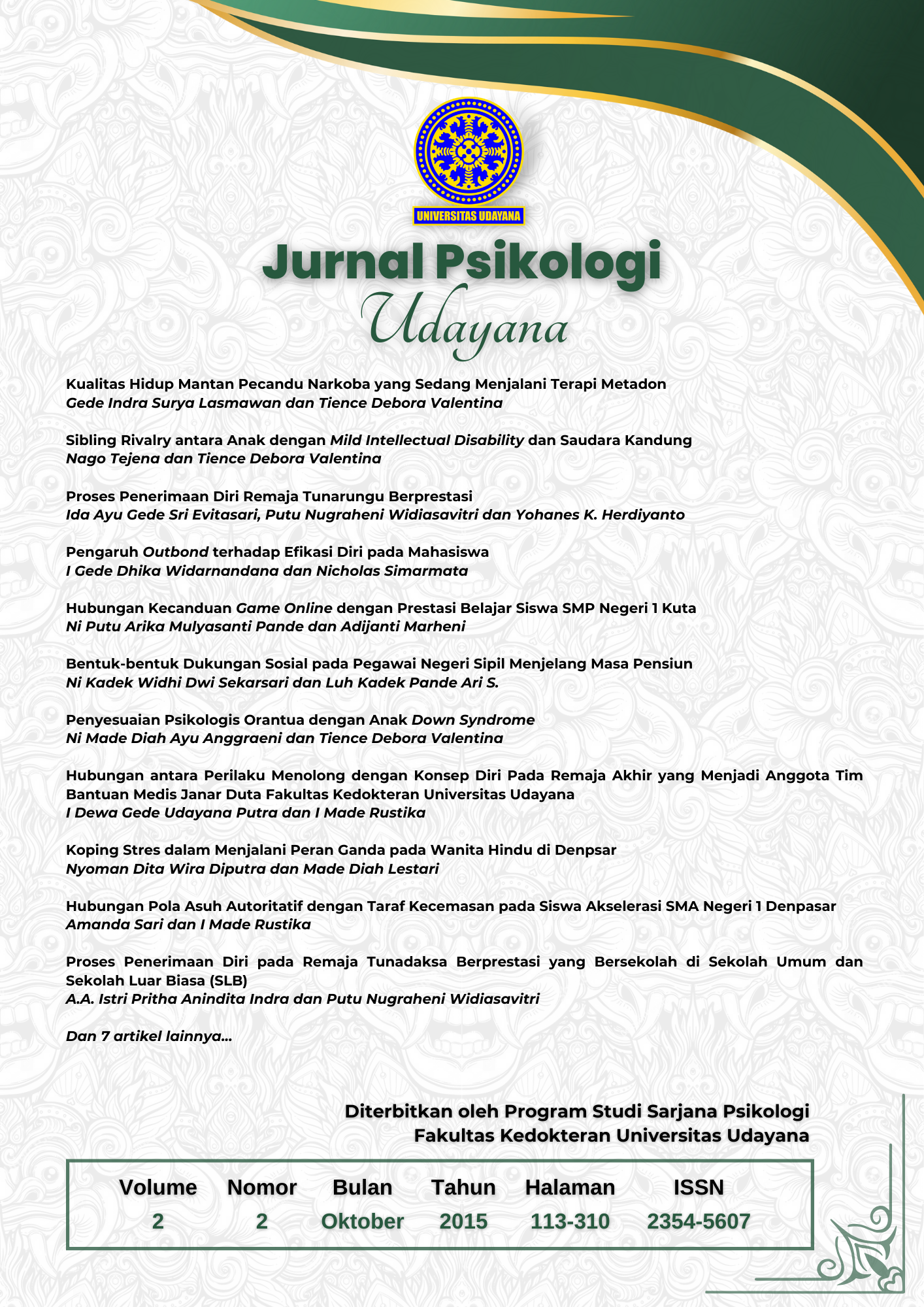KOPING STRES DALAM MENJALANI PERAN GANDA PADA WANITA HINDU DI DENPASAR
Abstract
In Bali, Hindu women are not only demanded to perfom the roles of housewives and career women, but they also have responsibility towards their banjar and their religion. They play important roles in preparing for religious ceremonies that are done almost every day, which include preparing banten, metanding, atau majejahitan (Lanus, 2010). Hindu women that have a dual roles in the family have the potential to experience stress because they are demanded to perform their roles as, office employee, and have religious and social duties in the banjar, as well as their basic role as a housewive. Stress coping is needed to deal with stressful conditions. This study aims to see the stressors, types, symptoms, and stress coping experienced by Hindu women in Denpasar. This study used a qualitative method with a phenomenology design. The subjects used in this study were five Hindu women 25-35 years old, have been married with maximum primary school age children, have duties as a housewife and as a career woman, have activities in the banjar and pura. The result of this study showed that the stressors came from their families and environment. Generally, the types of stress that came from families were pressure and frustration with psychological symptoms and were emotional focused coping. Stress that came from the environment usually in the form of conflict and frustration. The symptoms could be psychological and biological, and the coping used may include emotional and problem focused coping.
Key Words: Hindu Women, Dual Roles, Stress and Stress Coping
Downloads
Authors who publish with this journal agree to the following terms:
- Authors retain copyright and grant the journal right of first publication with the work simultaneously licensed under a Creative Commons Attribution-ShareAlike 4.0 International License that allows others to share the work with an acknowledgement of the works authorship and initial publication in this journal.
- Authors are able to enter into separate, additional contractual arrangements for the non-exclusive distribution of the journals published version of the work (e.g., post it to an institutional repository or publish it in a book), with an acknowledgement of its initial publication in this journal.
- Authors are permitted and encouraged to post their work online (e.g., in institutional repositories or on their website) prior to and during the submission process, as it can lead to productive exchanges, as well as earlier and greater citation of published work (See The Effect of Open Access).













